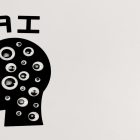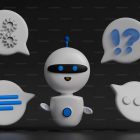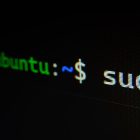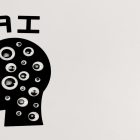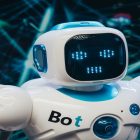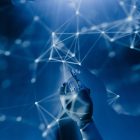10 Ways Artificial Intelligence is Changing the World as We Know It

Artificial Intelligence is Changing the World – Artificial Intelligence (AI) is changing the world as we know it, and the possibilities seem limitless. From improving healthcare to optimizing supply chain management, AI is disrupting various industries and transforming the way we live and work. In this article, we will explore 10 ways AI is changing the world and the impact it has on our daily lives.
Introduction
Artificial intelligence refers to the ability of machines to simulate human intelligence and perform tasks that typically require human intelligence, such as visual perception, speech recognition, decision-making, and language translation. AI technology has been around for decades, but recent advancements in machine learning and big data analytics have accelerated its development and adoption across various industries. Here are 10 ways AI is changing the world as we know it.
AI in Healthcare
AI has the potential to revolutionize the healthcare industry by improving patient outcomes, reducing costs, and accelerating drug discovery. AI-powered medical imaging tools can help doctors diagnose diseases more accurately and quickly, while AI-based predictive analytics can identify patients at high risk of developing certain conditions, allowing for preventive interventions. AI can also analyze vast amounts of data from clinical trials to identify new drug targets and accelerate the drug discovery process.
AI in Agriculture
AI is transforming the way we produce food, from precision farming to predictive maintenance. AI-powered drones and sensors can monitor crops in real-time, detecting early signs of disease or stress and enabling farmers to take proactive measures to prevent yield loss. AI can also optimize the use of resources such as water, fertilizers, and pesticides, reducing waste and environmental impact.
AI in Education
AI is enhancing the learning experience by personalizing education to individual student needs and abilities. AI-powered educational software can adapt to each student’s learning style, pace, and level of understanding, providing customized feedback and recommendations. AI can also assist teachers in grading and providing feedback on assignments, freeing up more time for classroom interaction and mentorship.
AI in Finance
AI is transforming the financial industry by automating routine tasks, detecting fraud, and improving risk management. AI-powered chatbots and virtual assistants can provide customers with personalized financial advice and support, while machine learning algorithms can analyze vast amounts of data to identify patterns and anomalies, enabling early fraud detection and prevention. AI can also optimize investment portfolios, predicting market trends and adjusting investments accordingly.
AI in Transportation
AI is revolutionizing the transportation industry by improving safety, efficiency, and sustainability. AI-powered self-driving cars can reduce accidents caused by human error and optimize traffic flow, reducing congestion and emissions. AI can also improve logistics by optimizing supply chain management, predicting maintenance needs, and reducing transportation costs.
AI in Marketing
AI is transforming the way businesses reach and engage with customers, by providing personalized and targeted marketing strategies. AI-powered chatbots and virtual assistants can assist customers in real-time, answering questions and providing recommendations. AI can also analyze customer data and behavior to predict buying patterns and preferences, enabling businesses to create targeted marketing campaigns.
AI in Entertainment
AI is changing the way we create and consume entertainment, by enabling new forms of content and personalization. AI can create personalized recommendations for movies, music, and books based on each user’s preferences and behavior. AI can also create new forms of content, such as virtual reality and augmented reality experiences, and improve the production process by automating tasks such as video editing and sound mixing.
AI in Cybersecurity
AI is improving cybersecurity by enhancing threat detection and response and improving overall security posture. AI can analyze vast amounts of data from multiple sources in real-time, detecting patterns and anomalies that may indicate cyber attacks. AI can also automate incident response, reducing response time and minimizing damage. Additionally, AI can improve identity and access management, by detecting and preventing unauthorized access to sensitive information.
AI in Manufacturing
AI is transforming the manufacturing industry by improving efficiency, productivity, and quality control. AI-powered predictive maintenance can detect equipment failures before they occur, reducing downtime and maintenance costs. AI can also optimize production processes, identifying bottlenecks and inefficiencies, and optimizing inventory management. Additionally, AI-powered quality control can detect defects and ensure product consistency.
Conclusion
In conclusion, artificial intelligence is changing the world as we know it, and its impact will only continue to grow in the coming years. From healthcare to manufacturing, AI is transforming industries and improving our daily lives. However, as with any transformative technology, there are also challenges and ethical considerations that need to be addressed. As we continue to embrace AI, we must ensure that it is used responsibly and ethically, to maximize its potential and minimize its risks.
FAQs
1. What are some examples of AI-powered healthcare tools?
There are numerous AI-powered healthcare tools that are currently being used or developed. These include chatbots that can provide basic medical advice and triage patients, medical imaging analysis software that can help detect and diagnose diseases such as cancer, and wearable devices that can monitor vital signs and detect potential health issues. Additionally, AI is being used in drug discovery and development, personalized medicine, and clinical decision support systems.
2. How is AI being used to improve agricultural practices?
AI is being used in agriculture to improve efficiency, productivity, and sustainability. AI-powered precision farming can optimize crop management, by analyzing data such as soil composition, weather patterns, and crop growth, and providing recommendations for optimal planting and harvesting times, as well as fertilizer and pesticide usage. AI can also monitor crop health, detect diseases and pests, and provide early warning for potential crop failures. Additionally, AI-powered smart irrigation systems can reduce water usage and waste.
3. How can AI enhance the learning experience in education?
AI can enhance the learning experience in education by providing personalized learning, adaptive assessments, and intelligent tutoring systems. AI-powered learning platforms can analyze student data and provide customized learning paths based on individual strengths and weaknesses. AI can also provide real-time feedback and support, and adapt to the student’s learning pace and preferences. Additionally, AI can automate grading and assessment, freeing up teachers’ time to focus on teaching and student engagement.
4. Can AI replace human workers in the finance and transportation industries?
AI has the potential to automate many tasks in finance and transportation industries, such as data analysis, fraud detection, and customer service. However, it is unlikely that AI will completely replace human workers, as there are still many tasks that require human judgment, creativity, and interpersonal skills. Additionally, AI may create new job opportunities and require new skills, such as data analysis and programming.
5. How can we ensure that AI is used ethically and responsibly?
To ensure that AI is used ethically and responsibly, we need to establish clear guidelines and regulations, promote transparency and accountability, and foster ethical practices and values. This includes ensuring that AI systems are unbiased, explainable, and secure and that they respect privacy and human rights. Additionally, we need to promote education and awareness about the risks and benefits of AI and engage in ethical discussions and decision-making about its use and development.






